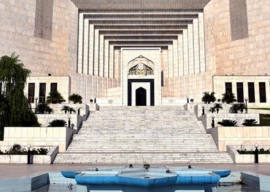
The payment of Diyat (compensation/blood money) made to the victims’ legal heirs in the Raymond Davis case is according to laws laid out in the Pakistan Penal Code (PPC).
“Diyat basically relates to a ‘compromise’ between the accused and the heirs of the victim,” explained a lawyer who asked not to be named.
Based on the Quran and Sunnah, and the financial position of the accused and that of the victim’s heirs, the minimum Diyat payment is the value of 30.6 kilogrammes of silver. According to the current market prices of silver, the Diyat payment for the heirs of each victim would be a minimum of nearly Rs2.7 million.
The process of paying compensation starts with an application that the victim’s legal heirs have to give in court. Lawyers said the application usually states that they have waived their right to Qisas (punishment) and have ‘forgiven the accused in the name of Allah’ or have ‘exonerated the accused in view of the provisions of Shariah’.
Following this, the judge asks the legal heirs to be present and asks the accused as well as the legal heirs whether the process can go ahead. The court does not need to be told about the exact amount paid.
Criminal lawyer Zulfiqar Abbas Naqvi said the court’s job is to check that the application is in order and all the legal heirs are listed properly.
Naqvi also pointed to Section 311 of the PPC, which states that if the court considers that the principle of Fasad-Fil-Arz applies, or if all the heirs do not waive the right to Qisas, the court can sentence a person to 14 years of imprisonment.
However, Fasad-Fil-Arz takes into account “the past conduct of the offender, or whether he has any previous convictions, or the brutal or shocking manner in which the offence has been committed which is outrageous to the public conscience, or if the offender is considered a potential danger to the community [or if the offence has been committed in the name or on the pretext of honour].”
Naqvi explained that this applies in cases where the crime has spread a sense of fear and terror in the community. He said that even if a Diyat application has been submitted, the court can say Fasad-Fil-Arz applies and sentence the accused.
Raymond Davis was indicted on Wednesday morning and by the evening, reports emerged that the compensation payment had been made. A criminal lawyer with 15 years of experience, who spoke on condition of anonymity, expressed amazement at the speed at which the Diyat application and payment was made in Davis’ case.
According to the lawyer, the process takes a considerable amount of time and does not happen within a day, as has happened in Davis’ case, after he was indicted.
Published in The Express Tribune, March 17th, 2011.


1730948380-0/Kamala-(1)1730948380-0-165x106.webp)














COMMENTS (16)
Comments are moderated and generally will be posted if they are on-topic and not abusive.
For more information, please see our Comments FAQ